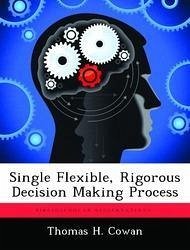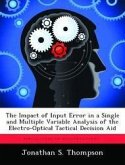This monograph answers the question 'Is there really more than one decision making process?'; The history of the decision making process began with the Prussian Army. After they were defeated by Napoleon, they decided that they needed to educate their officers in how to make sound military decisions. This led to the great success that they experienced in the mid-1800's. The United States Army adopted their process in the 20th Century. As war became more complex, more steps were added to the process and the process became more and more complicated. In 1993 the Army added two new processes. The Army did this because the officers in the field complained that the Deliberate Decision Making Process (DDMP) was too rigid and too time consuming to use. Upon careful examination of the three decision making processes using the problem solving methodology, this report determines that there really is only one process. The others are simply permutations of the first. Even though the DDMP is a very rigorous decision making process, it is important that commanders understand the spectrum of decision making that is inherent in the DDMP. With this knowledge they will know how to shorten the process. As the United States Army prepares for combat in the 21st century, it is vital that commanders and staff fully understand the inherent flexibility in the DDMP. If they do not, then units of the future will find themselves dogmatically trapped in a process that was intended to be flexible from the very beginning of its history.
Bitte wählen Sie Ihr Anliegen aus.
Rechnungen
Retourenschein anfordern
Bestellstatus
Storno








